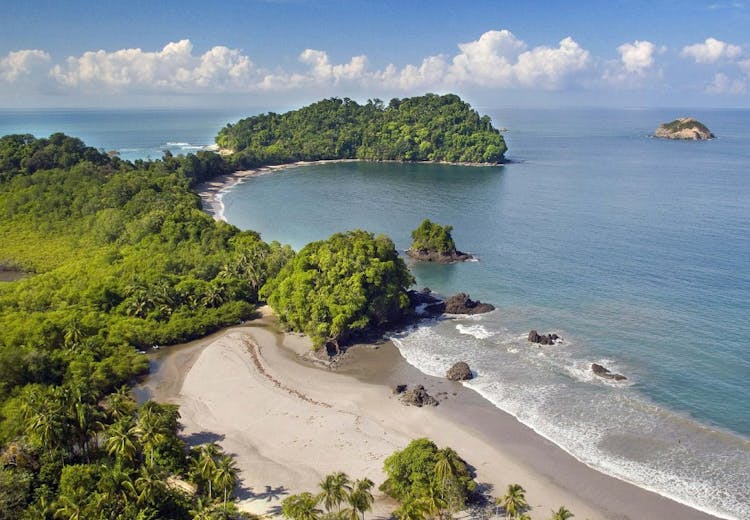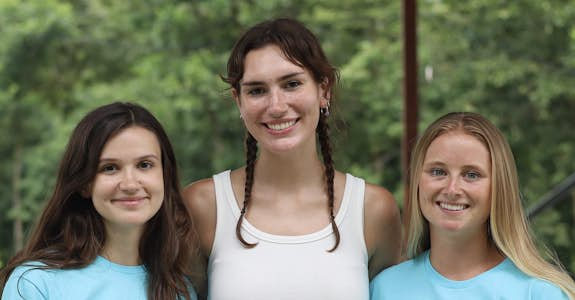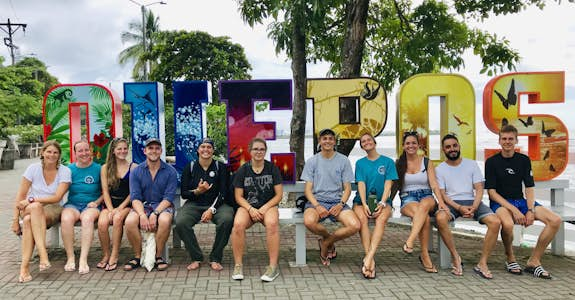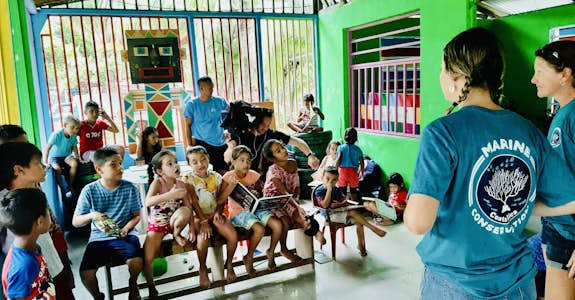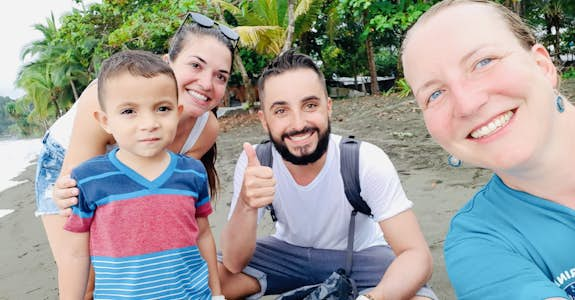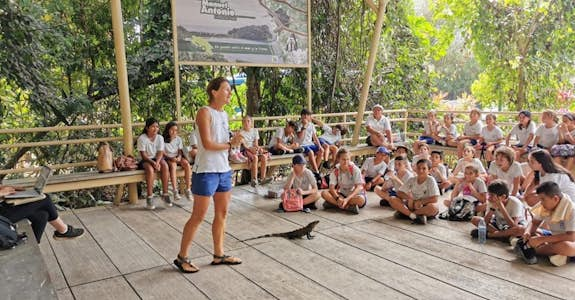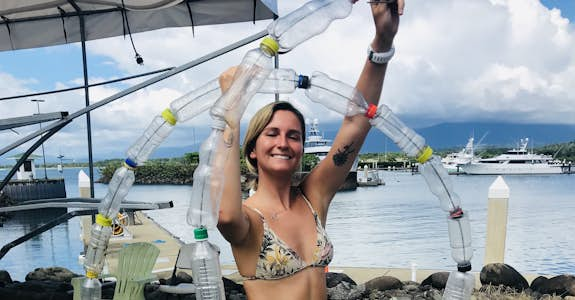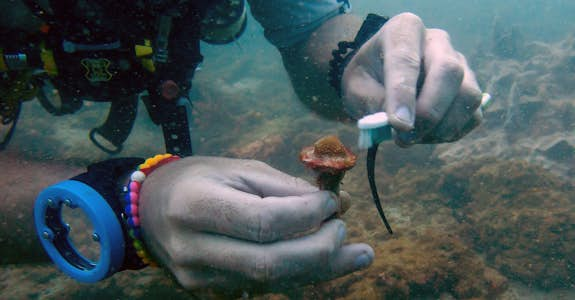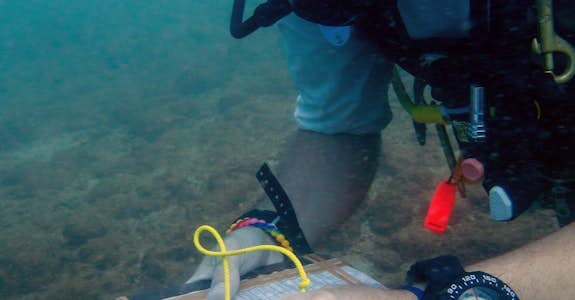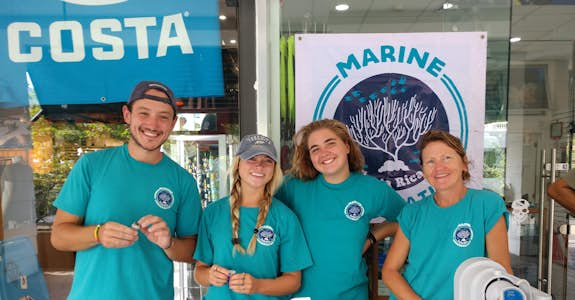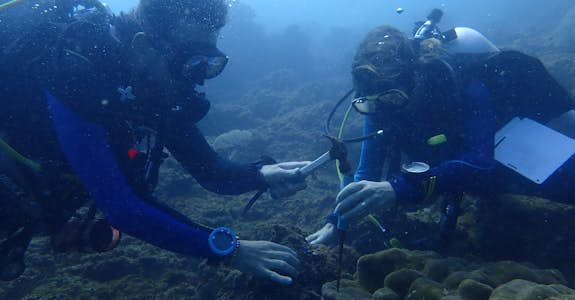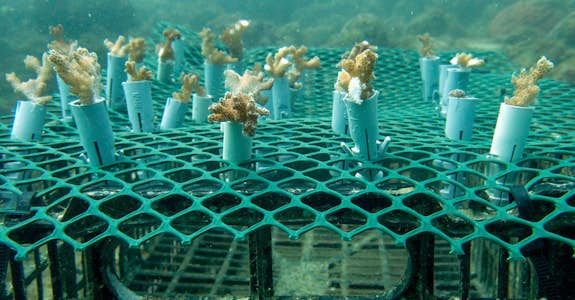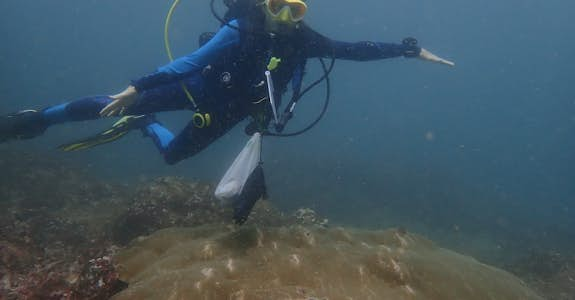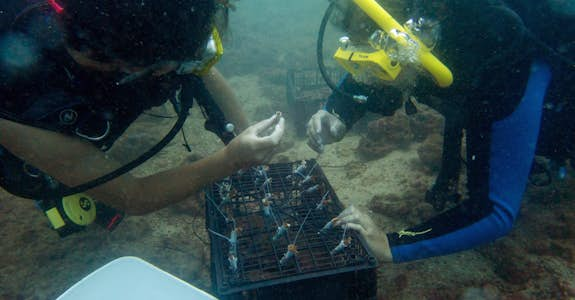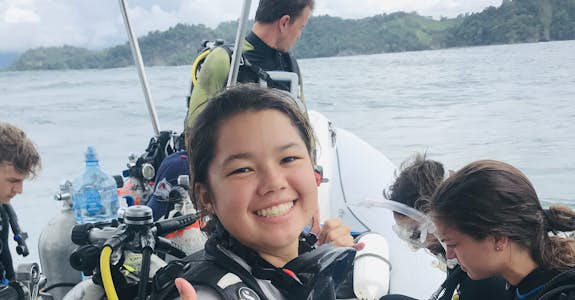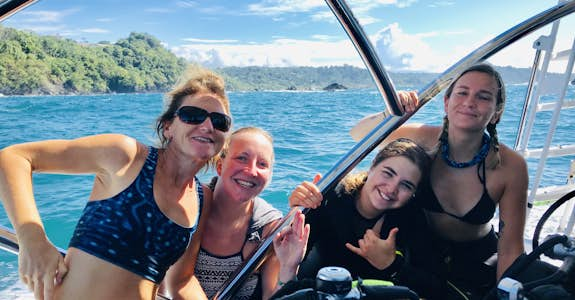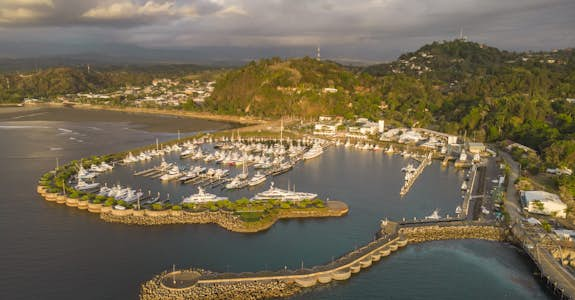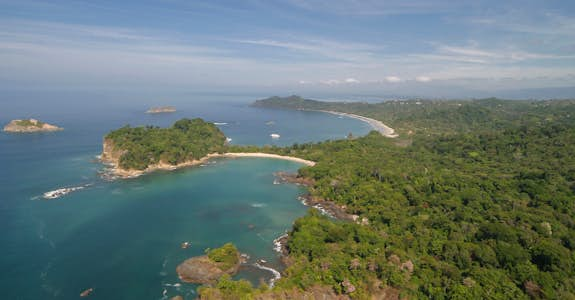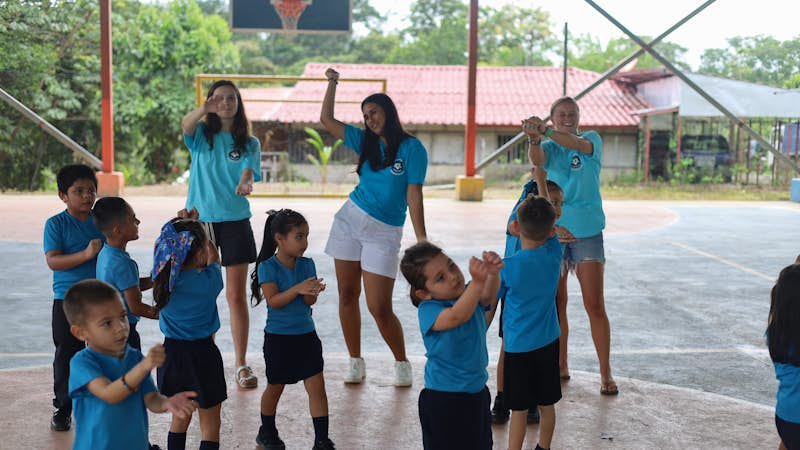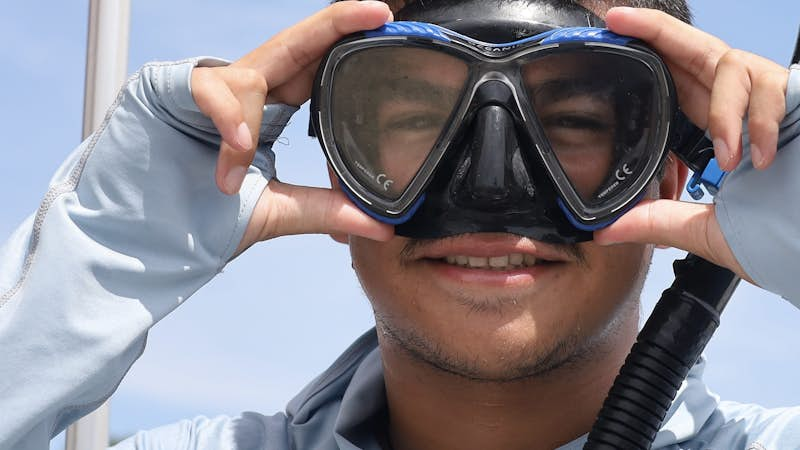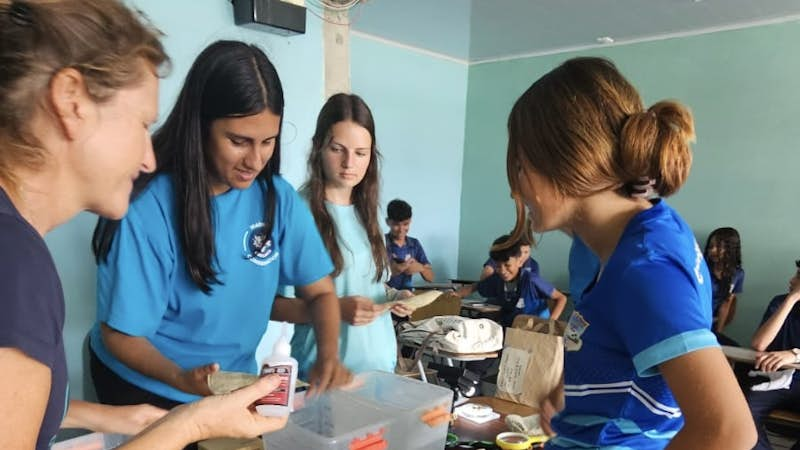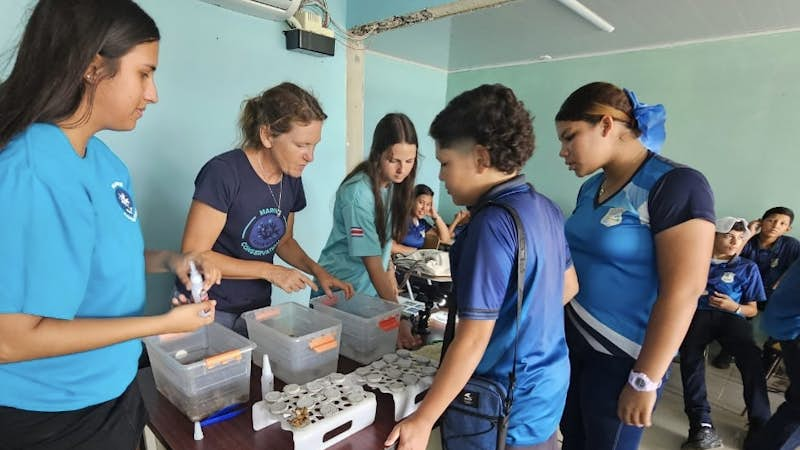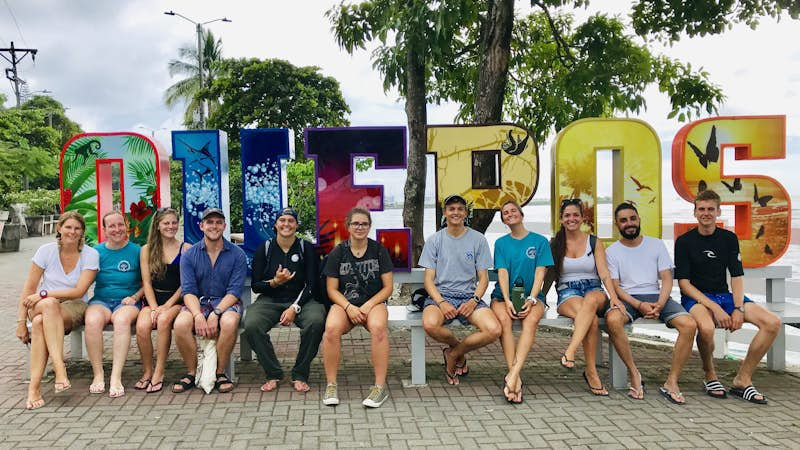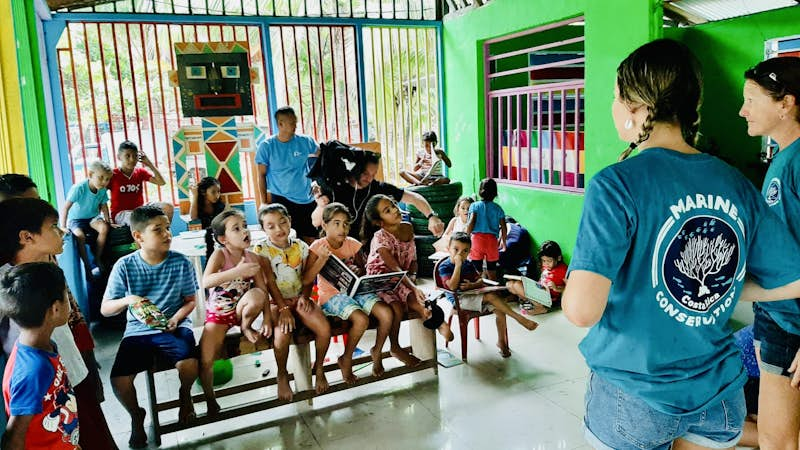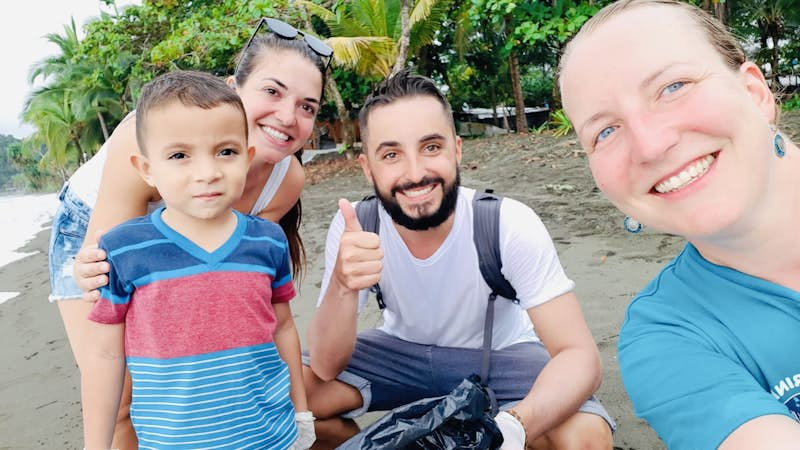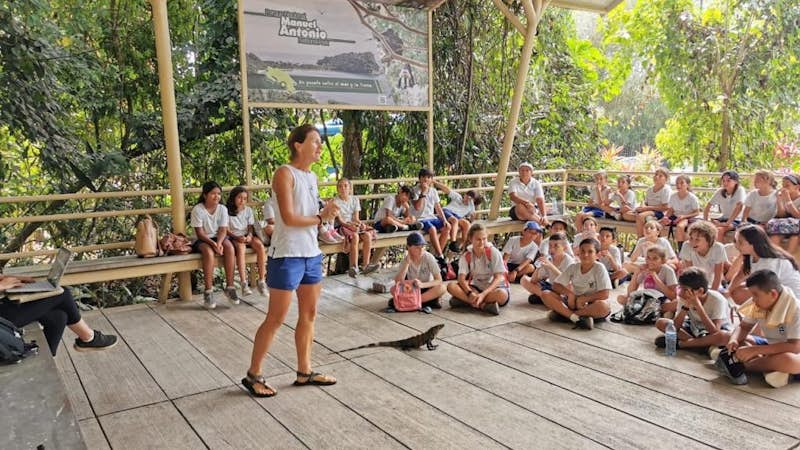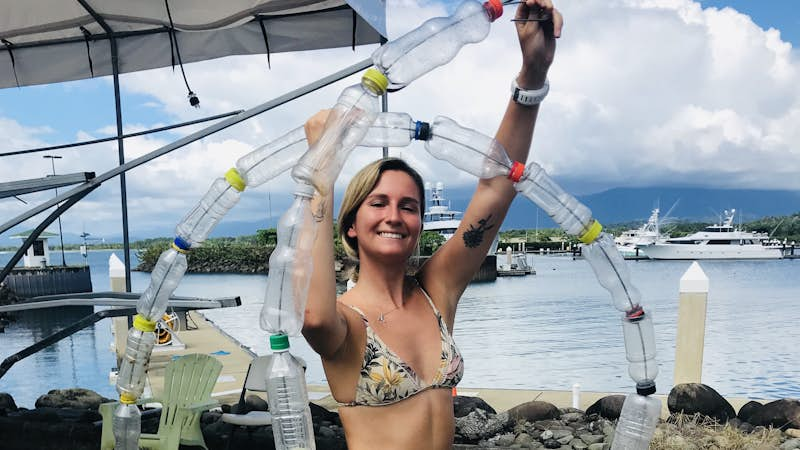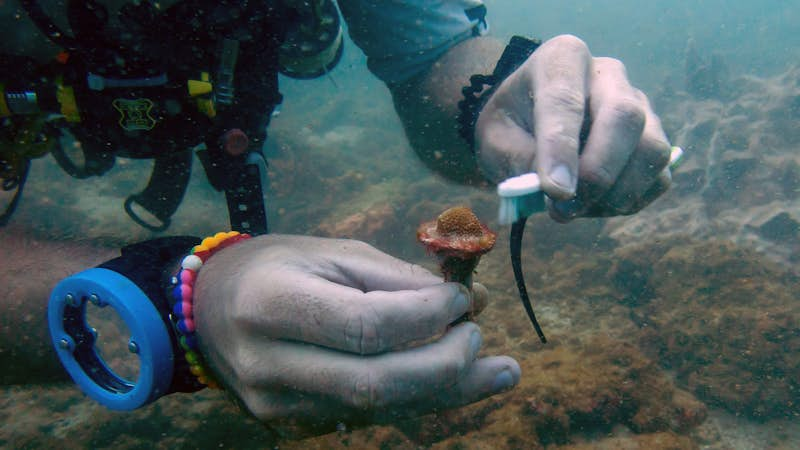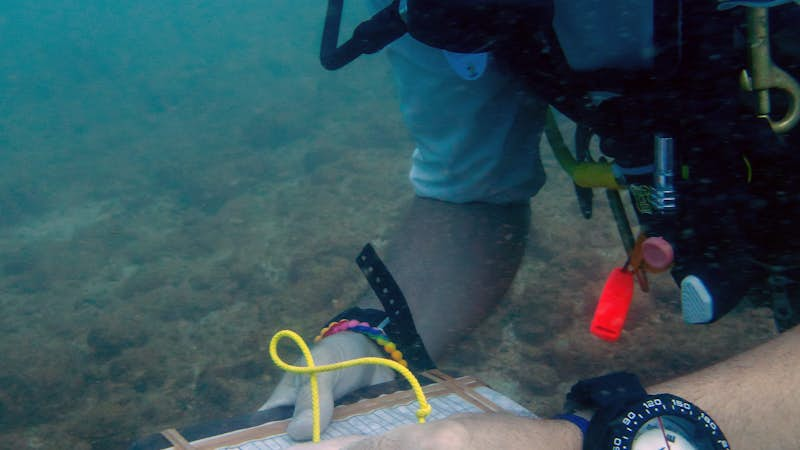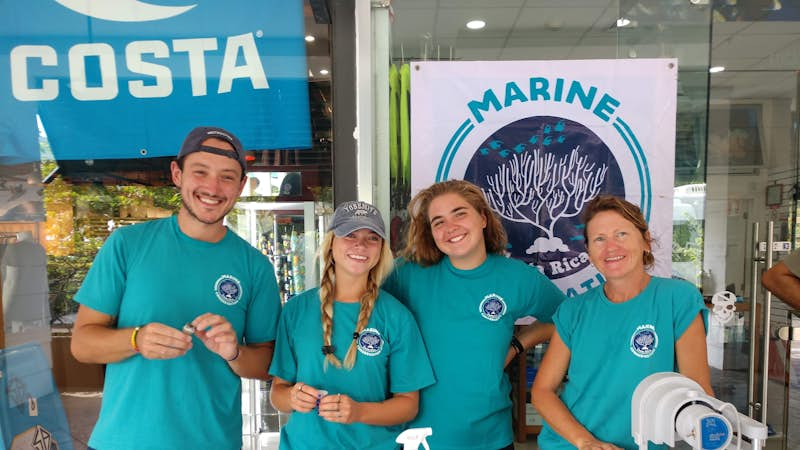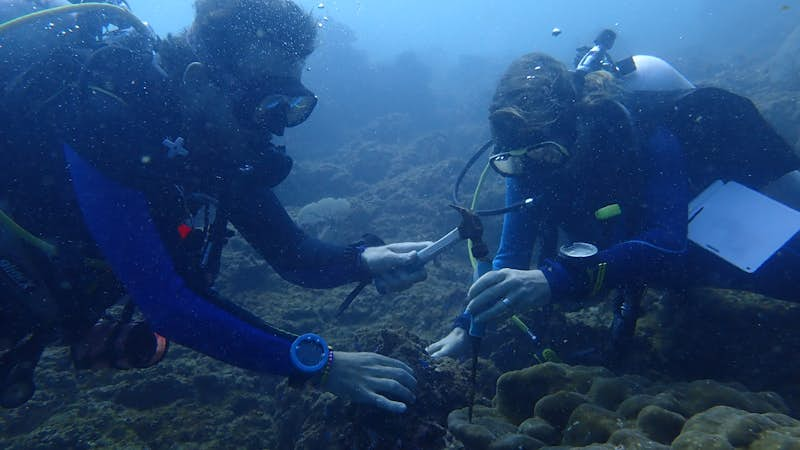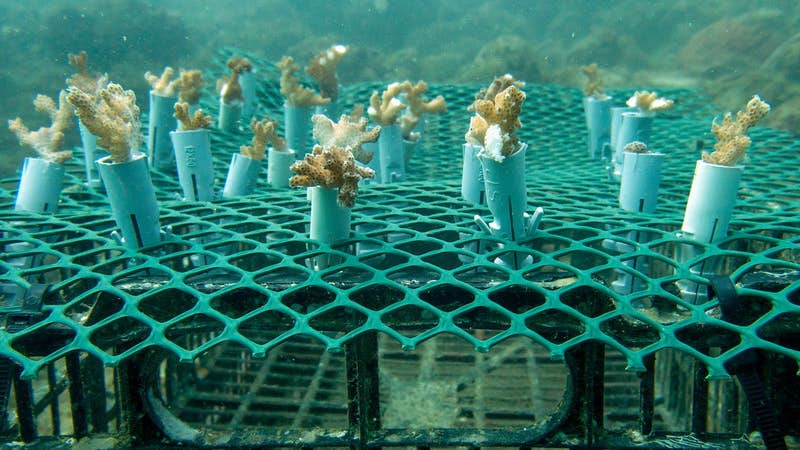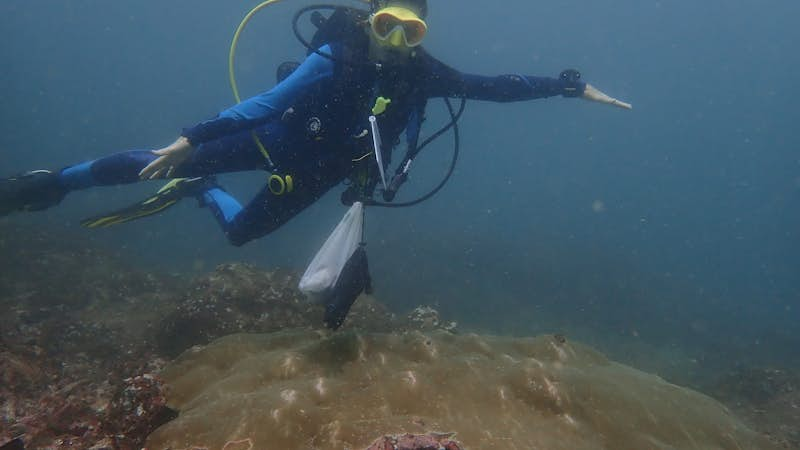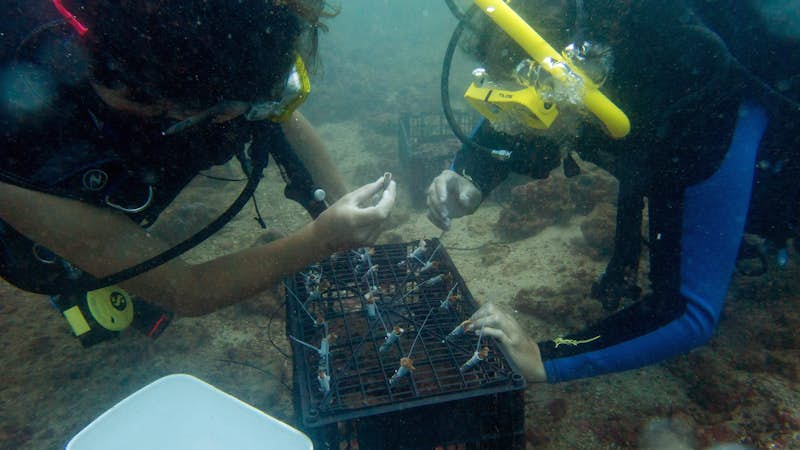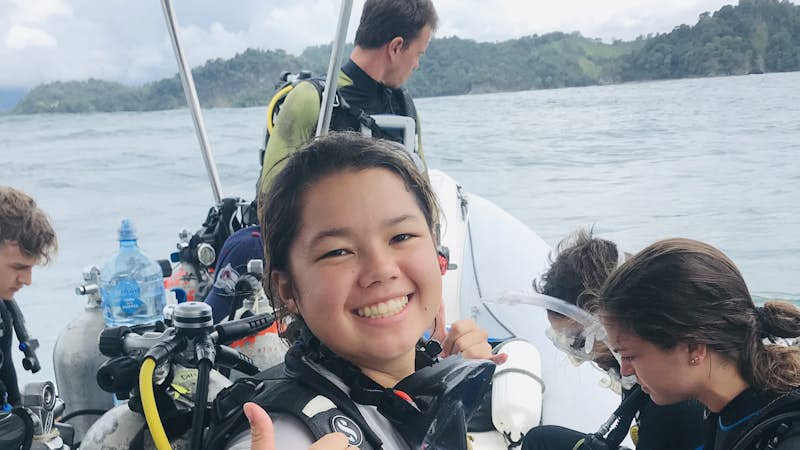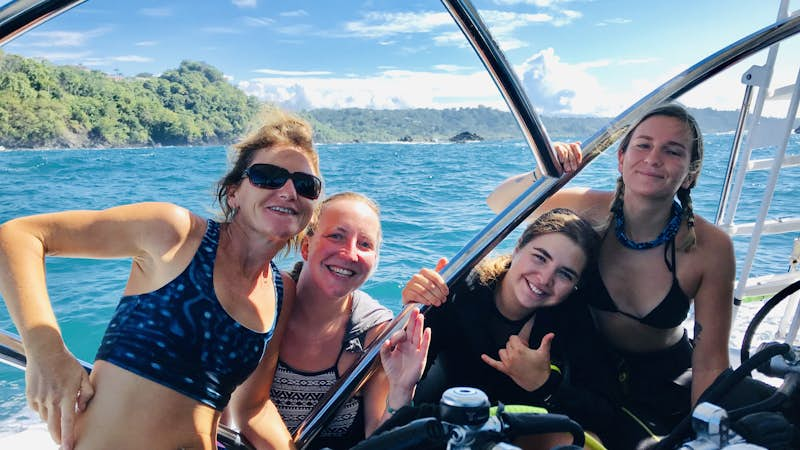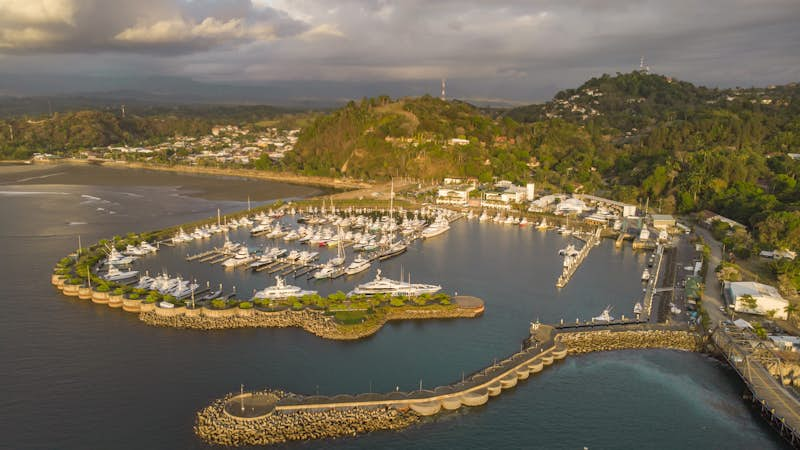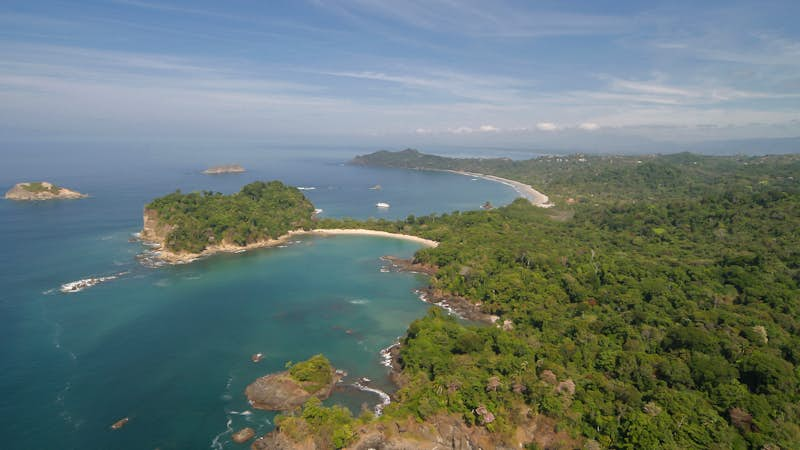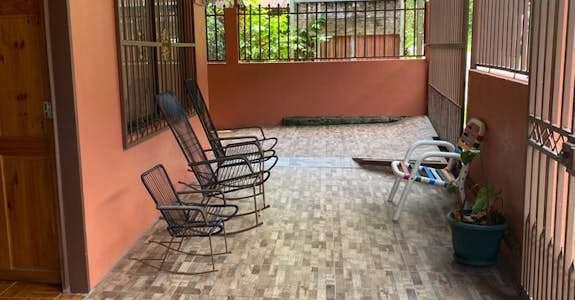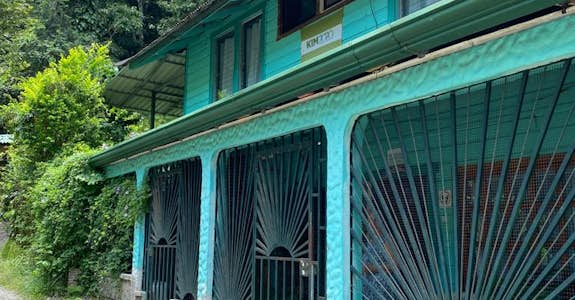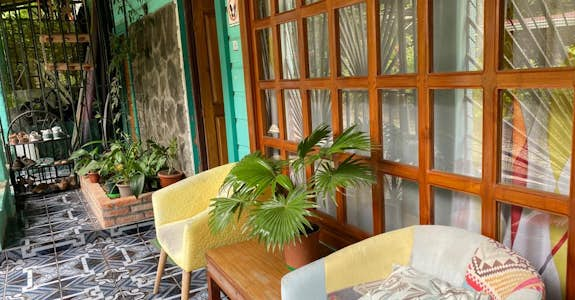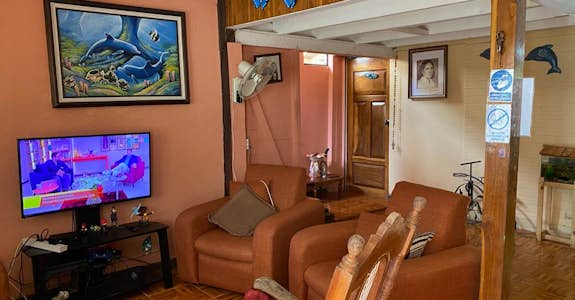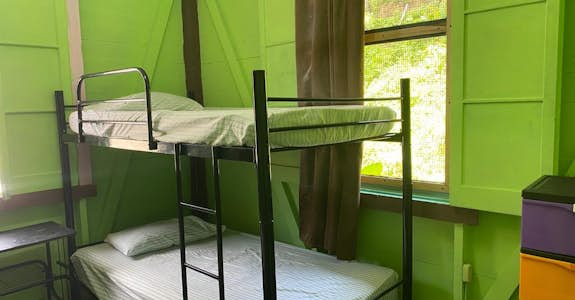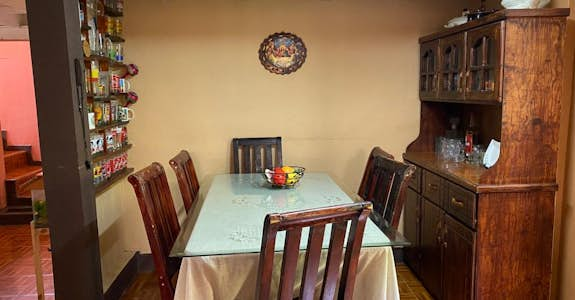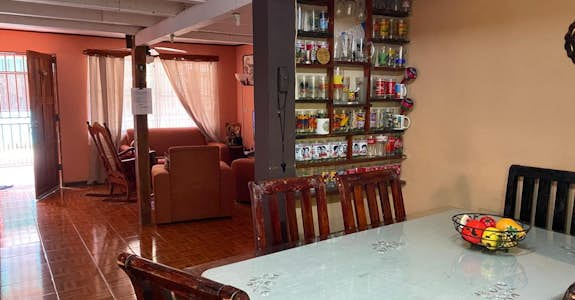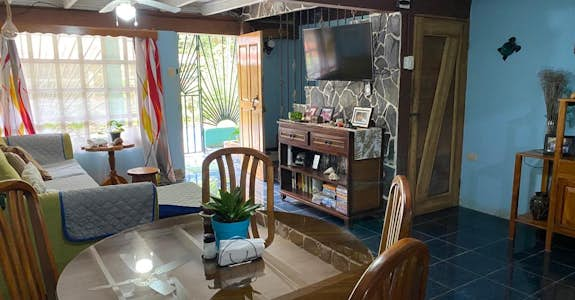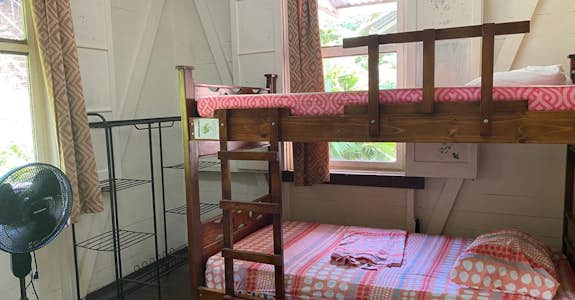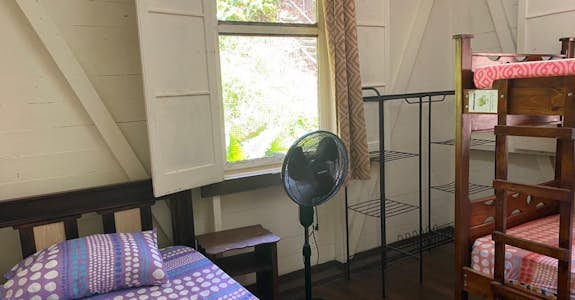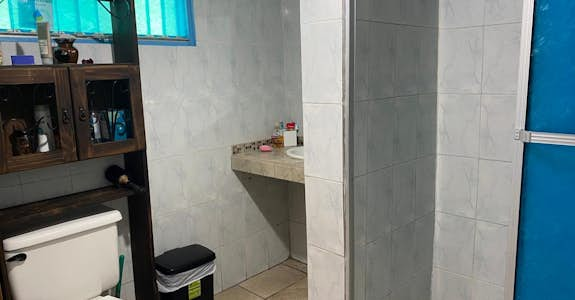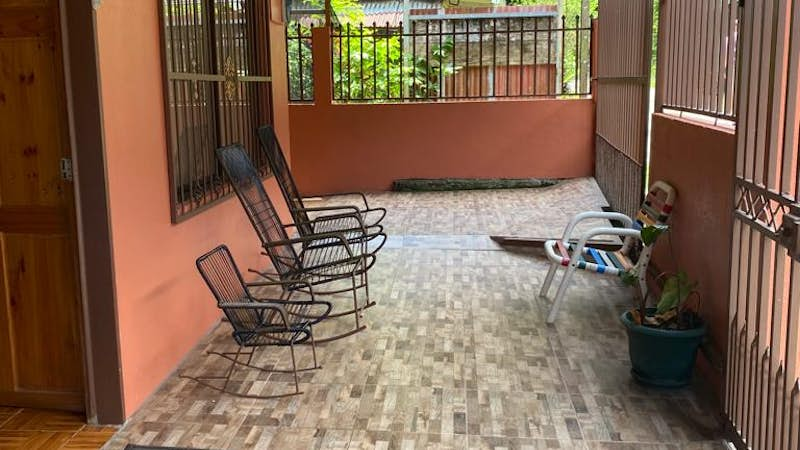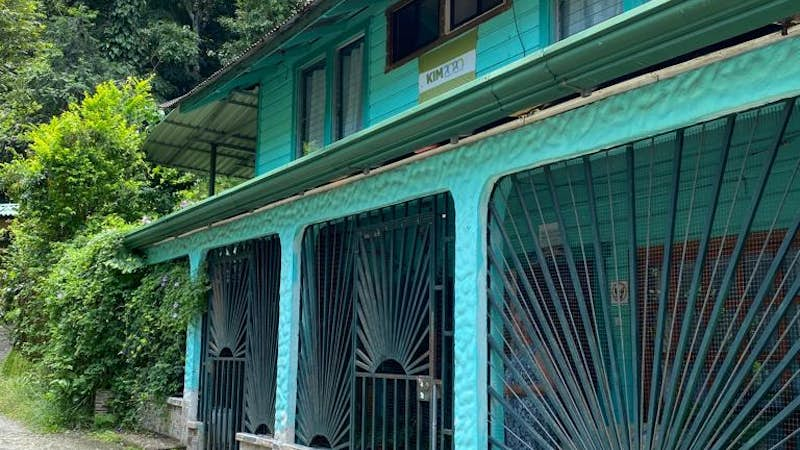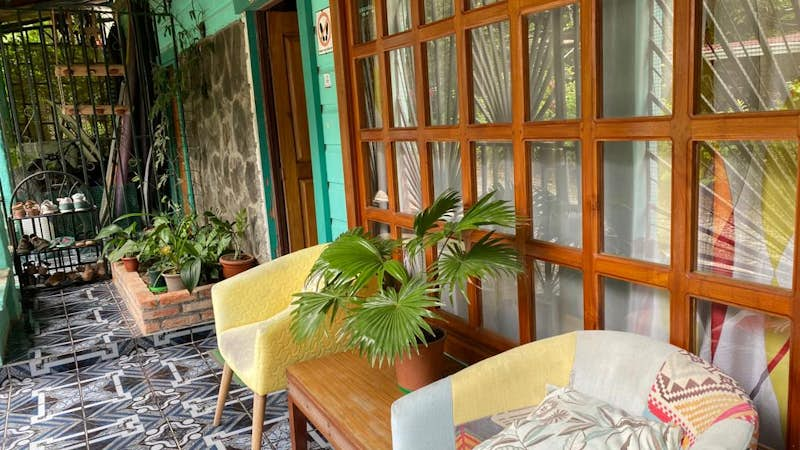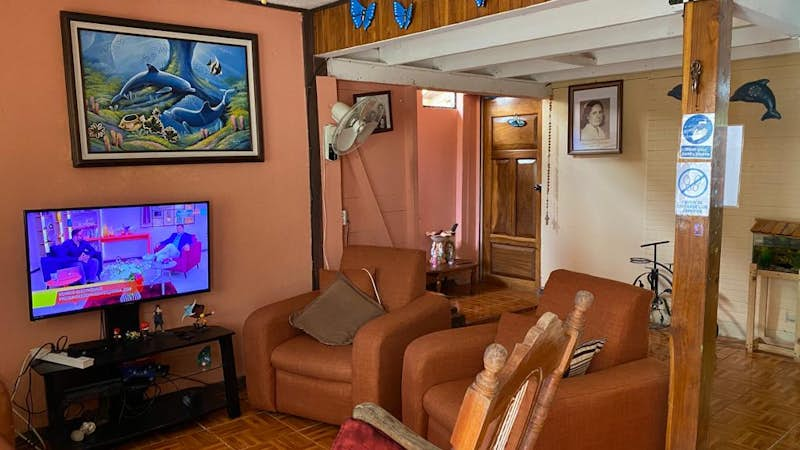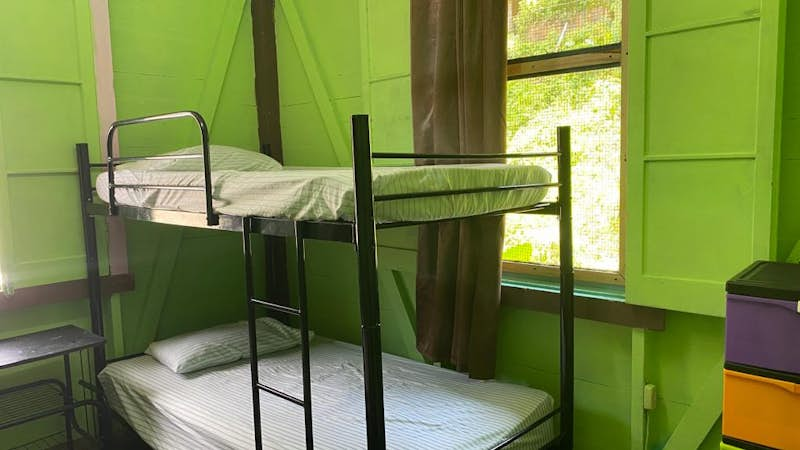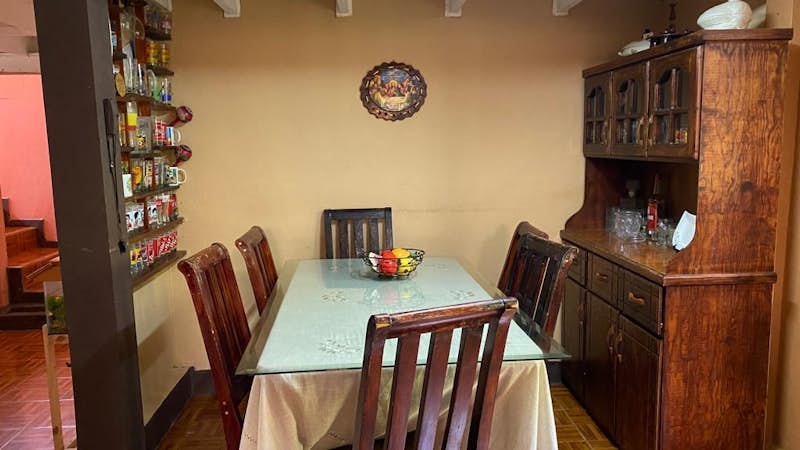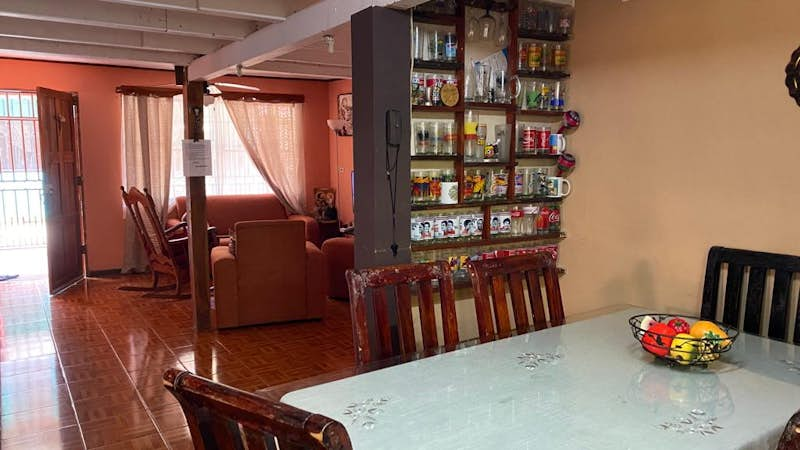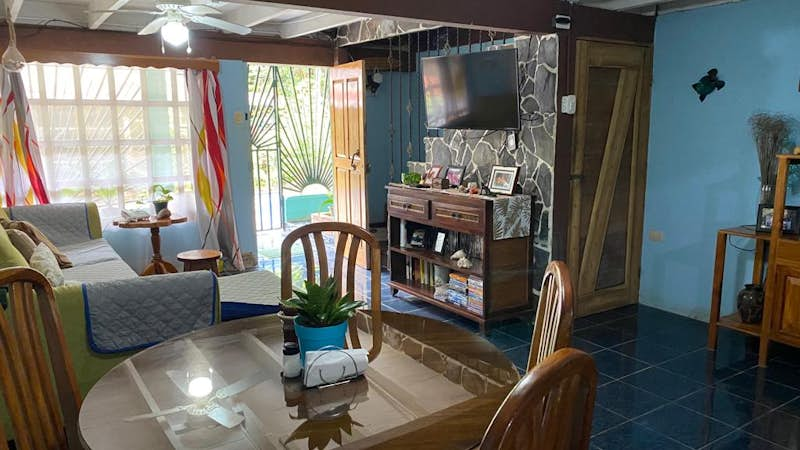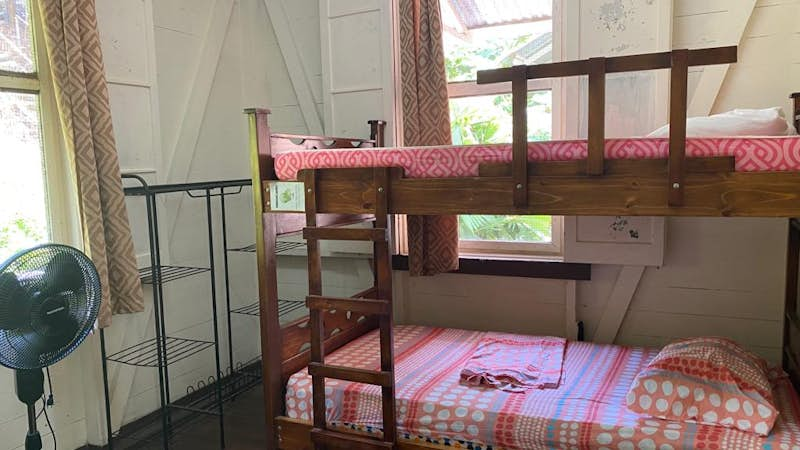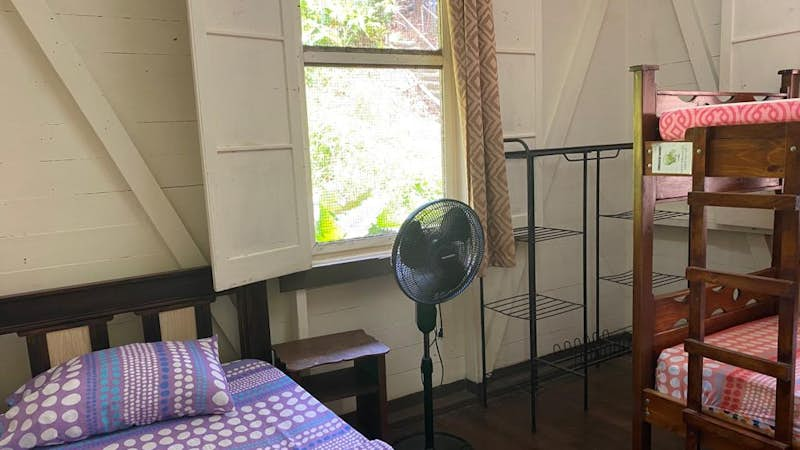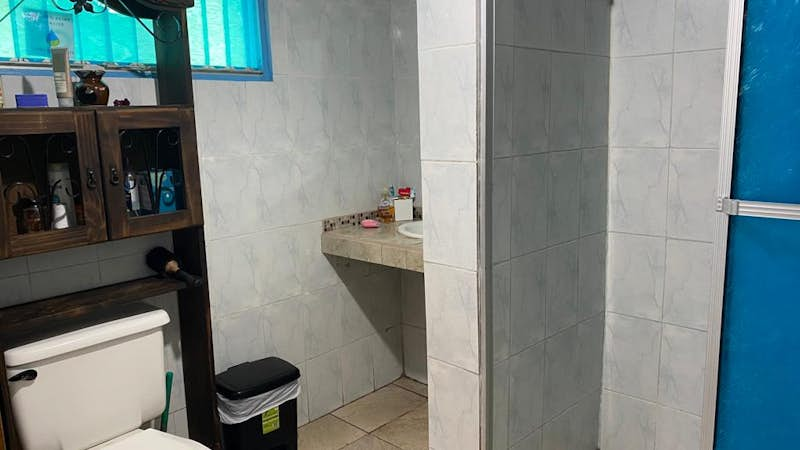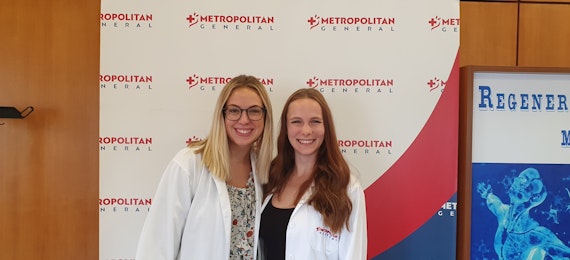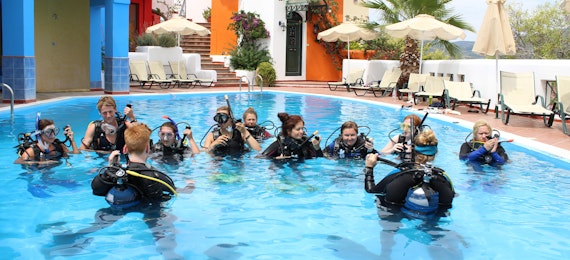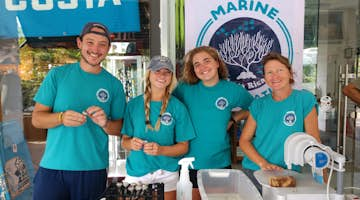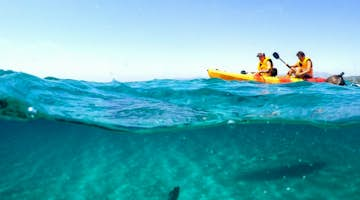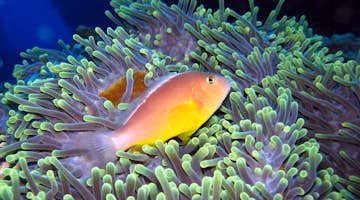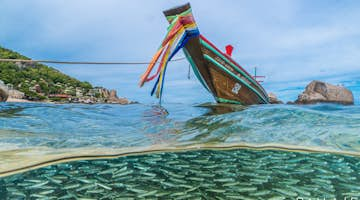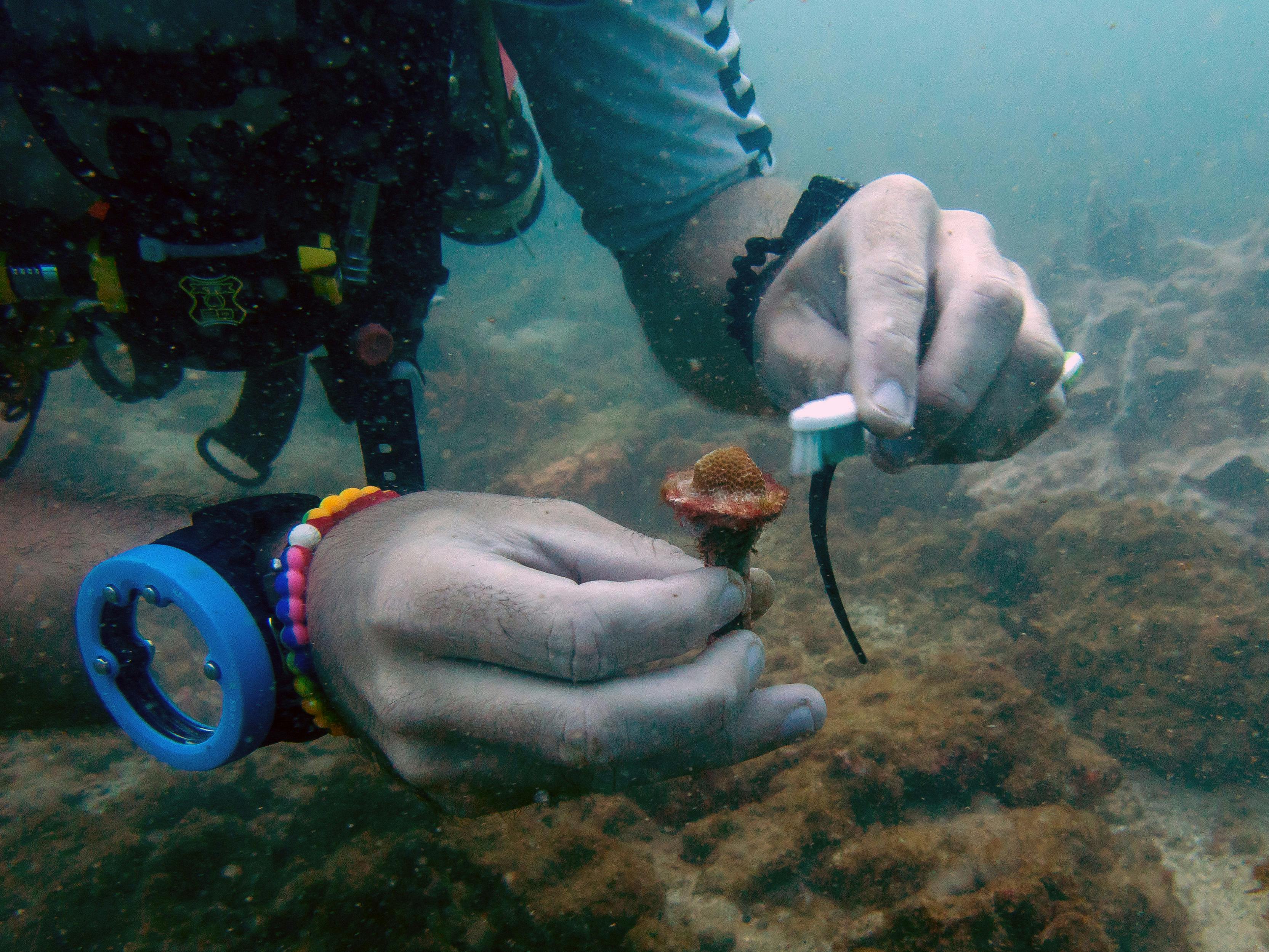
Coral Restoration Internships: Intern abroad in Manuel Antonio, Costa Rica
Intern with a local Marine Conservation organization in Manuel Antonio. Upskill as a conservationist and contribute toward the preservation of precious ecosystems. If you’re passionate about marine biology and conservation, this internship will provide experience in understanding real-world scientific efforts to support critical conservation initiatives.
What to expect from your Coral Restoration internship:
- Gain specialist experience in Coral Restoration
- Contribute to coral reef and ecosystem restoration
- Learn from experienced career scientists
- Enjoy spare time in Manuel Antonio, one of the world’s most biodiverse destinations
Your internship abroad host organization:
- Non-profit organization
Internship details
Coral Reef Restoration internships are offered through a local Marine Conservation non profit organization. Upskill as a conservationist and contribute toward the preservation of precious ecosystems.
This is an in-country internship, with accommodation and meals provided. Click here to view remote Environmental & Marine Sciences Internships, which you can undertake from home.
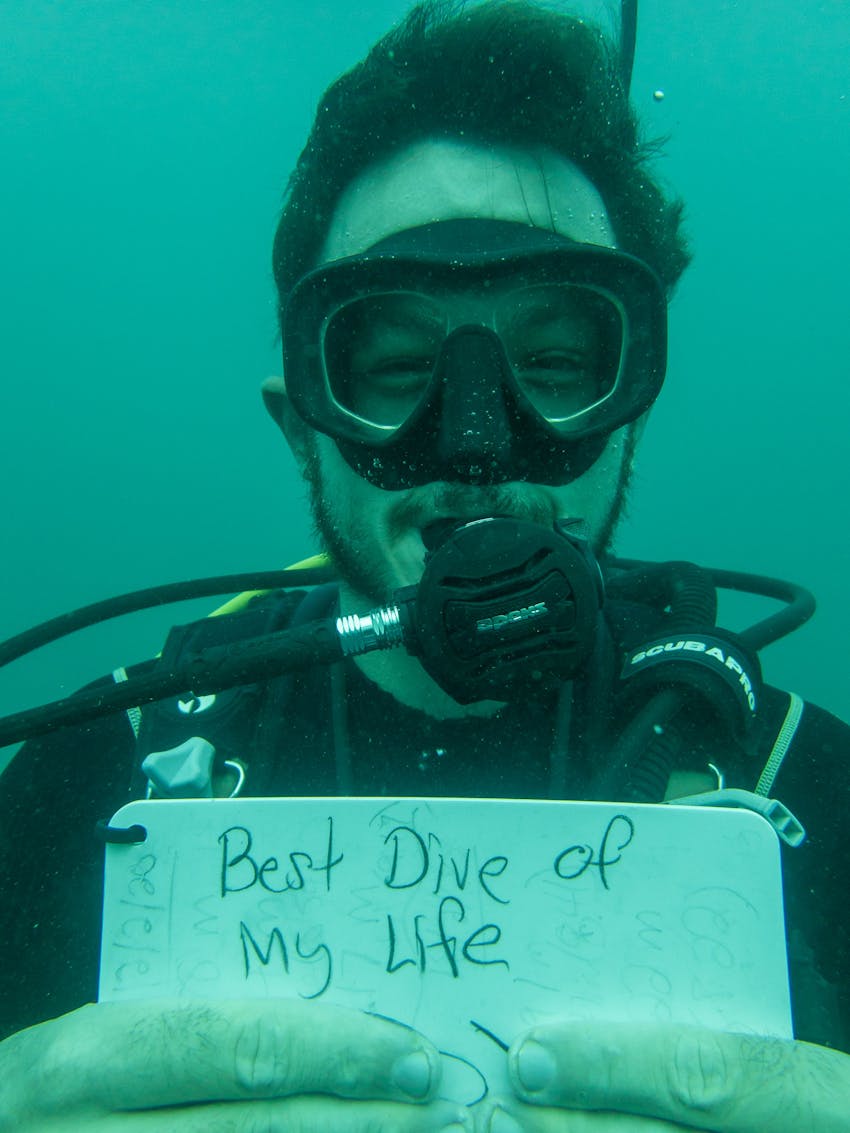
Coral reefs are considered one of the most productive ecosystems in the world, providing nurseries and vital habitats for many species of fish and invertebrates. However, around the world, these delicate structures are exposed to a range of anthropogenic and environmental threats, such as pollution, unsustainable fishing practices, invasive species, sedimentation from rivers, climate change, and more. The degradation of coral reefs endangers the health and biodiversity of the complex underwater ecosystems which depend upon them. By working toward the preservation and restoration of coral reefs, we work to protect and conserve ocean ecosystems as a whole.
In Manuel Antonio, Costa Rica, Coral Reef Restoration internships are offered through a local Marine Conservation non profit organization. The primary goals of the organization are focused on protecting the local marine environment, involving the community and providing ongoing educational support in regard to these important themes. The flagship Coral Restoration project is specifically focused on addressing the deterioration of the Manuel Antonio coral reef.
The key activities involved with Coral Restoration involve four main steps:
- Coral is harvested from healthy wild coral colonies, or where possible, healthy coral fragments of opportunity.
- Corals are micro fragmented and placed into ocean nurseries, situated near target reef restoration sites.
- Coral fragments are cared for within the nurseries, until they have grown large enough to be out-planted back onto the reef.
- Once on the reef, ongoing monitoring keeps track of coral health and growth, including survey of the reef ecosystem as a whole. Many species are key indicators of reef health, allowing conservationists to continually monitor changes and the success of the project.
Currently, this flagship project is involved with the restoration efforts of four different species of endemic hard coral. Working with these principal coral species, the organization is expanding nurseries to repopulate essential sites around the Manuel Antonio National Park. In addition, a new artificial reef project is being developed in collaboration with engineering students from the University of Costa Rica. The Coral Restoration project also contributes to local fish farms, which are working to reduce waste and increase ocean ecosystem health.
As an intern, you’ll learn from a range of experienced local divers and conservationists. The team behind this project include qualified biologists, wildlife conservationists, and oceanographers, also qualified as PADI Course Directors and PADI Master Instructors.
The internship consists of 2 - 3 dive trips per week (amounting to approximately 4 - 6 dives per week). A typical day usually involves a 7:15 a.m. start at the dive center. Morning dive trips depart at approximately 8 a.m. and return at noon. Afternoon study sessions commence from 1 p.m. On “non diving days” activities commence from 9 a.m. Non diving activities can include beach surveys, water quality surveys, clean-ups and data recording. Interns with a creative flair will also have scope to assist with projects related to education and awareness, such as blogs and social media outreach.
The Coral Restoration internship includes the Coral Restoration Specialty Certification. This is a unique certification developed by Marine Conservation NPO. This Certification course covers the science behind coral restoration, coral biology and restoration techniques. Once certified, interns contribute to data collection, cleaning nurseries, measuring Corals and maintaining nurseries.
If you are not currently PADI certified, then you are still welcome to participate. However, you will be required to complete an “intro week”, at an additional cost, prior to beginning the Coral Restoration internship. During the intro week, you will complete open water and Adventure Diver with Peak Performance Buoyancy (PPB certification). This introductory week will include the necessary online materials and certifications that you need.
It is important to note that Coral Reef Restoration internships are unavailable from mid September, through till the end of October. This is due to heavy rainfall in October.
For the diving, all internship participants will be required to have the following: mask, fins, snorkel, dive computer, compass, underwater slate for recording data during surveys, safety sausage and reel (for diver safety during surveys), and rash guard. The rental of a BCD, regulator, and wetsuit is included in the cost of the internship program fee. However, interns may also consider bringing their own (especially a wetsuit, if you want to ensure your best fit). Some equipment can also be purchased locally at the dive center but there are limited items. If you are interested in purchasing any equipment onsite, please ask in advance, to ensure availability.
Interns will be asked to complete a general dive medical questionnaire (prior to leaving your country of origin and prior to starting the internship program). In certain or isolated cases, some participants may need to obtain specific clearance by a dive Doctor if any disclosed illness or injury is of a serious nature (which could potentially endanger you while diving). In this case, you’d need to be issued with a medical certificate stating or clearing that you are fit to dive irrespective of the illness or injury. Such information would need to be provided to us in advance of your arrival. If you have previously been diagnosed with Covid-19, then you will need to consult your doctor and obtain medical clearance prior to joining the diving activities of this internship. You will need to do this in advance, before you arrive for the internship.
Typical Schedule
-
Approx. 8am to 4pm, Monday to Friday
What are the career benefits of interning abroad as a Coral Restoration Intern?
Coral Restoration interns learn from a qualified and experienced supervisor, and can be involved in:
-
Coral harvesting
-
Obtaining coral micro fragments
-
Cleaning and maintaining nurseries.
-
Outplanting coral to reefs
-
Monitoring to track coral health and growth
-
Reef ecosystems surveys
-
Data collection and surveys
-
Community education
-
NPO administrative support
Professional development opportunities:
-
Gain PADI Coral Restoration Specialty Certification
-
Enhance your diving experience through engagement in real world conservation projects
-
Obtain professional references from experienced PADI masters and career conservationists
-
Gain practical skills and boost your employability, with guidance from Intern Abroad HQ’s Experiential Learning Curriculum to support your learning and cultural intelligence.
Are you eligible for this internship?
Submit a free application so we can confirm your eligibility and check availability for your preferred dates.
Not sure which program to join?
Costa Rica photo gallery
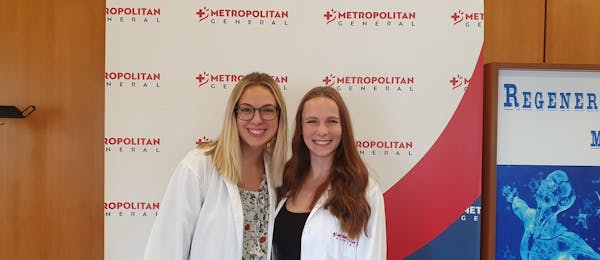
Academic credit available for all internships
Get course credit from your college or university while completing your internship abroad or a remote internship program. It's a great way to meet your academic requirements and gain valuable experience at the same time.
Learn about course creditProgram fees
Applying for our Coral Restoration Internship is completely free! The support package covers the assistance we provide in finding your internship and arranging your living accommodations in your host country, ensuring you thrive during your program.
Please note that a deposit of US$499 is required to confirm your place. The remaining balance (minus your initial US$499 deposit) is due at least 60 days before your internship start date.
Duration |
Program Fee (USD) |
|---|---|
| 4 weeks | $3,665 Equivalent to $130 /day |
| 5 weeks | $4,256 Equivalent to $121 /day |
| 6 weeks | $4,847 Equivalent to $115 /day |
| 8 weeks | $6,029 Equivalent to $107 /day |
| 10 weeks | $7,261 Equivalent to $103 /day |
| 12 weeks | $8,443 Equivalent to $100 /day |
| 16 weeks | $10,832 Equivalent to $96 /day |
| 20 weeks | $13,221 Equivalent to $94 /day |
| 24 weeks | $15,635 Equivalent to $93 /day |
- Airport pick-up
- Daily breakfast and dinner
- Accommodation
- 24/7 in-country support
- Program orientation
- Dedicated support before, during, and after your internship
- In-country guidance for social and tourist activities
- Sourcing and securing your internship placement
- Personalization of your internship plan
- Coaching from your supervisor
- Documented portfolio of your experiential learnings
- Academic credit facilitation
- International reference letter
- Certificate of Internship Completion
- Lunches
- All in-country transportation
- Transfer back to the airport at the end of your internship program
- Visa (if required), flights, travel insurance (mandatory), vaccinations, criminal background check
- Personal spending money for snacks, drinks, public transport, laundry, and leisure activities during your free time.
Free-time experiences & tours in Manuel Antonio
Take your internship to the next level with Intern Abroad HQ's affordable activity and tour add-ons in Manuel Antonio! Explore your options below and learn how to book them once you've been accepted onto an internship program.

All participants on our Marine Conservation and Coral Restoration programs must be scuba certified to minimum PADI Adventurer with buoyancy experience. If not, it’s ok - you are still welcome to proceed - but you’ll need to achieve the required level of PADI proficiency before the start date. Just sign up for our “intro week” package.
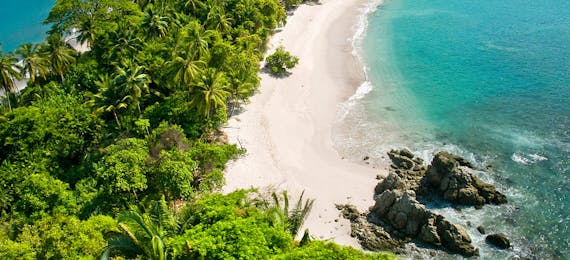
Hike through the Costa Rican rainforest and discover a large variety of flora and fauna in Manuel Antonio Park’s 683 hectares.

If you are already Open Water certified you just need to complete this PADI Advanced Diver Course, which can be integrated into the regular internship schedule (so there is no need to arrive an extra week in advance). This course is facilitated through the Dive Center and must be confirmed and paid for in advance.
Language lessons
Fluency in Spanish is not a requirement for interns in Manuel Antonio; however, lessons with a local language school can be arranged for those who wish to learn. Lessons are coordinated directly through our team in Costa Rica and can be confirmed in advance or at the orientation.
Arrival and Orientation
Internships in Manuel Antonio begin on the first and third Monday of each month. Exceptions may be made to this when start dates are shifted to avoid public holiday disruptions or closed when the program has already reached capacity. Interns may choose to spend a minimum of 4 weeks, up to a maximum of 24 weeks.
Note that Coral Reef Restoration and Marine Biology internships are unavailable from mid September, through till the end of October. This is due to heavy rainfall in October. The Environmental Education and Sustainable Business & Tourism internships are available year-round.
Airport pick up and accommodation are included in the Program Fee:
- The accommodation is covered from the Sunday night before the Monday start date - interns are required to arrive no later than the Sunday before their Monday start date, as all orientations are held on Mondays.
- The typical port of entry is the Juan Santamaría International Airport (SJO). Upon arrival, interns will be met, greeted, and transferred to the accommodation.
- Interns are asked to arrive at SJO no later than 3pm on Sunday (before the Monday start date), as Quepos / Manuel Antonio is approximately 3 hours drive from San Jose. It’s advisable to have an early night, to avoid being overtired on the start date.
- The last night of the accommodation is the Saturday night of the final week, leaving interns free to depart on Sunday.
- Extra nights of accommodation can be arranged in advance, if requested, and are subject to availability.
If you are planning to spend time independently in Costa Rica prior to your internship and will not require an international airport pick up, we can discuss alternative arrival logistics with you.
Orientation covers important details for your internship, including introductions, information about culture, customs, rules, expectations, safety, language lessons, cultural excursions, and more. Your specific internship placement orientation will follow the general orientation, as you’ll be shown how to travel to and from your internship and be introduced to the team you’ll be joining.
Please note that all internship participants are advised not to book flights until they have first registered to confirm their internship placement.
Check what's required to visit Costa Rica
Check out the widget below to learn about the visa requirements for the Coral Restoration internship in Costa Rica, based on your country of residence.
Accommodation and WiFi
Interns are accommodated in various local homestays, which are typically situated in the “Zona Americana” neighborhood of Quepos. This is an extremely convenient location, being within walking distance of the world class yacht yard of Marina Pez Vela (just 5 minute’s walk of the dive center), the local farmers market, central market, bus station, abundant shops, restaurants, cafes, and the “malecon” boardwalk. Both the Quepos airport and the Manuel Antonio National Park are approximately just 5-10 minutes’ drive.
Homestay accommodations provide international interns with an extra layer of support, while also providing a valuable opportunity for cultural immersion. Breakfast and dinner is provided, as well as laundry service and basic WiFi. Each homestay can, on average, accommodate between 4-9 guests. However, guest numbers can change throughout the year, according to the program seasonality, and individual variations of stay. Bedrooms are basic and each can sleep between 2-3 guests, with space for guest storage.
Homestay accommodations themselves may be mixed-gender. However, the bedroom allocations are single-sex. Guests must be prepared to share common living spaces with mixed-gender, such as shared kitchen, living, dining, and bathroom areas.
Most families have pets at the home stays (including small dogs or cats). If you have severe allergies please let us know so that we can make alternative arrangements in advance if needed (this may incur additional accommodation expenses).
It is important to note that homestays do not have air conditioning. The typical constructions allow for open air flow and accommodations are equipped with fans.
Requests for any exceptional accommodation arrangements must be communicated in advance of the internship start date. For those seeking alternative arrangements, accommodation “upgrades” are available (at an additional cost) upon request (subject to availability).
Please note that the accommodation pictured in the photo gallery of this webpage is provided as an example. Since we work with more than one option for accommodation, the exact accommodation that you’re assigned may differ from the photos. However, you can expect a similar standard and similar amenities, to what is shown.
Meals
Internships include two meals per day provided by the host family (daily breakfast and dinner). Breakfast in the homestays is served at 6.30am. Interns will usually spend lunch time around the marina, where you can purchase sandwiches and snacks from the commercial plaza. There is also sufficient time to walk into downtown Quepos, where there are many affordable eateries. Dinner at the homestays is served around 6.30pm. If you choose to opt out of breakfast or dinner, any day of the week, you should communicate this back to your host family.
A typical Costa Rican breakfast may consist of cereal, fruits, pinto and eggs, accompanied with coffee. Dinner commonly consists of starches (rice and beans), as well as meat (often chicken) and salad. Meals are basic, hearty and nutritious, but may not be what you’re used to eating at home. Tap water may be consumed in Costa Rica. If there are special snacks you like to have, please budget for them. Alcohol consumption and smoking is not permitted in any of the homestay accommodation.
Let us know in advance if you have any specific dietary requirements. Bear in mind that strict vegan diets can be more difficult to accommodate. Lots of fresh fruit and vegetables are available but specific substitution products, such as non-dairy milks, are very expensive in Costa Rica.
A weekly budget of approximately US$100 should be sufficient for covering weekly lunches, while also having extra for snacks/treats/drinks and public transportation. (If you want to eat at fancy restaurants every day, it will be easy to spend more. However, there are great local eateries and markets which are affordable).
Essential country information
| Capital | San Jose |
| Population | 5.094 million |
| Languages | Spanish |
| Currency | Costa Rican Colón (CRC) |
| Time zone | UTC−06:00 |
Weather and climate:
Costa Rica experiences a tropical climate year-round. Although you get much cooler temperatures in the mountains, the average annual temperature for most of the country lies between 21.7°C (71°F) and 27°C (81°F). In the Quepos / Manuel Antonio area, the temperature typically varies from 78°F to 92°F (25°C to 33°C) and is rarely below 75°F or above 94°F (24°C or above 35°C).
There are just two seasons - the dry season, from December to April, and the rainy season, from May to November. Due to the large amount of rain in October, the diving internships (Coral Restoration and Marine Biology) are unavailable from Mid September until November 1st. The non-diving internships are available year-round.
What recent Coral Restoration interns said about their experience
I liked being able to live in another country while working and gaining experience in a field I am interested in.
I enjoyed getting to know the staff, fellow interns and exploring Costa Rica. I especially enjoyed learning new SCUBA techniques and strategies for doing work underwater. The presentations on marine life and health were super interesting.
Love this internship and diving was the best atmosphere and community and Costa Rica is a beautiful country.
I enjoyed every aspect of the internship. I got to work with Katharine directly (the supervisor) and some of my fellow interns on the Marine Conservation of Quepos, as well as working directly with the coral nurseries. I feel like every activity, every moment I spent in Quepos, CR will definitely help me with my personal and professional development.
To read all reviews, visit our reviews page.
